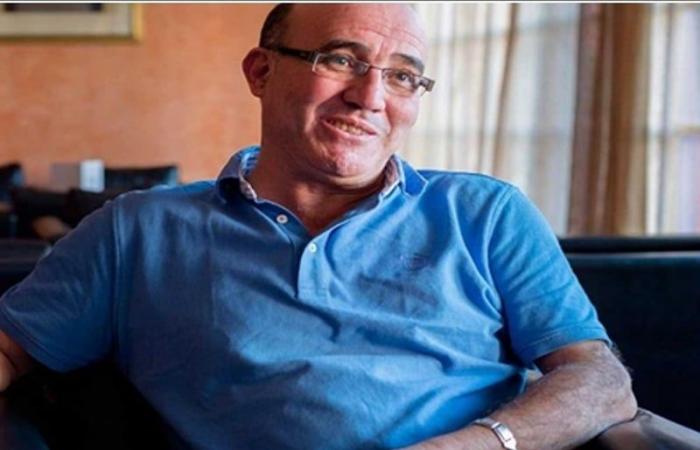At the dawn of the presentation of the 2025 finance law and the announcement of a $600 million loan from the World Bank, Morocco finds itself at a crucial turning point in the evolution of its social protection system. . While these financial initiatives represent significant potential to strengthen the country’s social safety net, they also highlight the urgency of a deep and necessary overhaul of the first version of social protection, which, until now, has often left aside the needs of people with disabilities.
Social protection in Morocco must transcend traditional approaches that associate disability with the inability to work and poverty. It must be part of a global, inclusive and equitable perspective, capable of recognizing and responding to the diverse needs of people living with disabilities. Future reforms must therefore address the current inadequacy of benefits, often inaccessible and unsuitable, in order to create a framework that truly promotes the autonomy and full participation of people with disabilities in all aspects of life. social and economic.
By taking these issues into account, this article is intended to be a plea for global, generalized and truly inclusive social protection, highlighting the transformations necessary to guarantee that every citizen, whatever their condition, can benefit from the fundamental rights and services that come back to him.
The issue of social protection for people with disabilities in Morocco must be part of a global framework where disability is gradually recognized as a crucial issue of social justice and equal rights. Although progress has been made, the system remains insufficient, and social coverage for people with disabilities remains inadequate and often does not comply with international standards. According to global statistics, only a third of individuals with severe disabilities receive disability-related benefits. In most cases, these supports do not meet social security standards established by the International Labor Organization (ILO) and the United Nations Convention on the Rights of Persons with Disabilities.
Disability and poverty: a worrying relationship
People with disabilities constitute “the largest minority in the world” and face exclusions that weaken them socially and economically. This marginalization is exacerbated by social protection policies that continue to perpetuate misconceptions: disability is often associated with an “inability to work” and an increased risk of poverty, leading policies to view benefits as simple compensation. This view not only limits employment prospects but also reinforces dependency, while a more modern approach would aim to empower them.
In reality, people with disabilities have the potential to be fully integrated into societies, but this requires well-designed social protection systems focused on autonomy and participation in all areas of social life. In this context, cash benefits, although important, are not sufficient on their own; they must be supplemented by support services and measures facilitating their professional and social inclusion.
The economic cost of exclusion is too high
The exclusion of people with disabilities from the labor market generates a considerable economic cost for Moroccan society. According to a 2010 study, the economic potential of people with disabilities in Morocco represents approximately 9.2 billion dirhams, or 2% of the national GDP. Including these people in the economic fabric could therefore not only improve their quality of life, but also contribute significantly to the country’s economic growth.
Morocco’s conventional and constitutional obligations
To fill the current gaps, it is essential that Morocco respects its international and constitutional commitments. The rights of people with disabilities include equitable access to health services, an adequate standard of living, and decent work. The Committee on the Rights of Persons with Disabilities recommends that Morocco strengthen its health infrastructure, raise awareness among professionals about the rights of persons with disabilities, and implement protocols guaranteeing free and informed consent.
In the area of employment, it is imperative to review recruitment and integration policies to combat discrimination and guarantee access for people with disabilities to decent employment. This includes creating a long-term plan to facilitate access to the labor market, particularly for women and young people.
Towards an inclusive and effective social protection system
To ensure real inclusion of people with disabilities, it is urgent to rethink the design of services. Rather than limiting them to monetary assistance, it is essential to put in place a system that offers social support and adapted services. Benefits must aim to promote autonomy, allowing people to participate fully and effectively in society, without being limited to compensating for a supposed disability.
The Unified Social Register (RSU) in Morocco is designed as a universal targeting system to determine the eligibility of households for social support programs based on an index based on socio-economic criteria. However, for this tool to be truly inclusive, it is crucial to integrate criteria relating to disability and the specific needs of people with disabilities. This integration would make it possible to better understand the causal relationship between poverty and disability, and to take into account the additional costs borne by these people and their families due to disability.
The link between disability and poverty is often invisible in statistics and little discussed in political discourse. Yet data shows that people with disabilities face major obstacles that put them at greater risk of poverty. According to figures, the poverty rate among working-age disabled people is twice as high as among other individuals experiencing poverty. This is partly due to increased difficulties in education, employment and income.
Recommendations for inclusive social protection
For inclusive social protection, it is recommended to improve access to rehabilitation care: Strengthen rehabilitation services in hospitals and local health centers to offer continuous monitoring to people with disabilities.
To adopt a strategy to ensure that persons with disabilities have access to health services and to ensure that this strategy covers, in particular, the development of accessible infrastructure, the training of health professionals in the rights of persons with disabilities and the provision information on medical treatments in accessible formats, particularly for people with intellectual or psychosocial disabilities.
Also, develop new health training sectors: Increase the number of professionals trained in essential areas, such as occupational therapy and clinical psychology, to meet the specific needs of people with disabilities.
Facilitate access to technical aids: Simplify the conditions of access to devices and prostheses by modifying the current regulations for disabled people in precarious situations.
Strengthen research and development: Invest in assistive technologies to promote the autonomy of people with disabilities and improve their quality of life and provide compensation allowances: Establish financial aid for poor families and for people with disabilities unemployed in order to cover disability-related costs and promote their social inclusion.
It is also recommended to establish a social protection system aimed at guaranteeing an adequate standard of living for people with disabilities, in particular through compensation systems in the form of allowances which will allow people with disabilities to cover disability-related expenses. and to take into account the links between Article 28 of the Convention and target 10.2 of the Sustainable Development Goals in order to empower all people and promote their economic inclusion, regardless of disability.
A major project for inclusion
To build a more inclusive and equitable Moroccan society, it is necessary to adopt a proactive and integrated approach, relying on precise and current data. The World Bank is set to approve $60 million in funding for the second phase of Morocco’s social protection project, which could mark a turning point for the inclusion of people with disabilities. That said, it is crucial that all stakeholders, in particular the Ministry of Finance, the Ministry of Health and Social Protection, the Ministry of the Interior, as well as the High Authority of Health, the Moroccan Agency for medicine and health products, and the Moroccan Agency for Blood and its Derivatives, are becoming aware of the importance of reforming and adapting social protection systems.
These systems can effectively address the challenges posed by disability by comprehensively covering the additional costs caused by it. The objective should be to make ordinary services and benefits accessible to all, while setting up specific programs adapted to people with disabilities. Cash, while important, is not enough on its own. Like everyone else, people living with disabilities have varied needs at different stages of their lives, and these needs must be met by differentiated services and institutions.
For example, social protection systems can play a key role in facilitating access to early childhood education and schools, supporting physical and vocational rehabilitation programs, as well as promoting access to economic emancipation initiatives such as professional training and integration into the labor market. By integrating these elements, Morocco can not only improve the quality of life of people with disabilities, but also enrich the social and economic fabric of the country, thus contributing to a future where everyone can actively participate in the life of society.
*Teacher – Consultant in Inclusive Development and Disability






